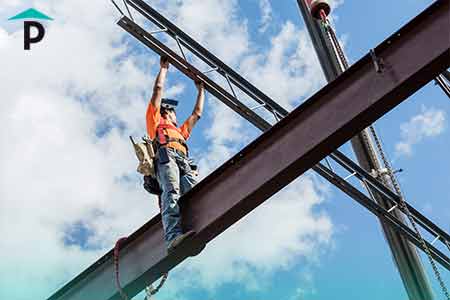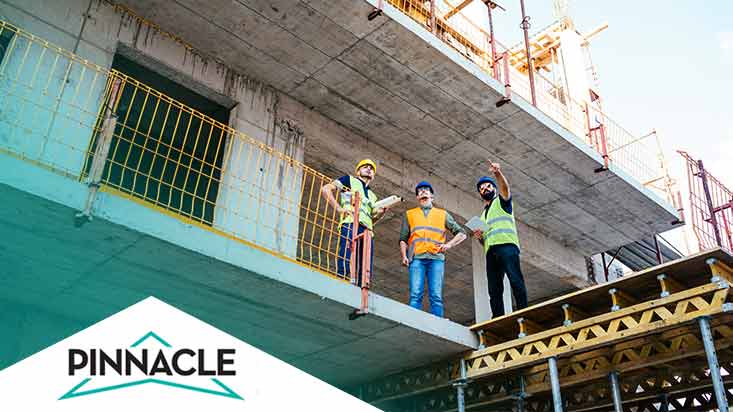Construction companies cannot utilize the opportunities to win new business and secure lucrative new contracts without contract surety bonds. At Pinnacle Surety, we specialize in construction surety bonds and understand how vital bonding is to enable your business to grow. With over 30 years of experience, our team has the knowledge to help your business to maximize its bonding potential, bid on bigger projects, and build on existing successes.
Call: (844) 612-7238 to get started
Contract surety bonds are an essential requirement for many construction projects. Surety bonds act as a three-party agreement between the project owner (obligee), the construction company (principal), and the surety. Having surety bonds in place reassures the project owner that the construction company will stick with their agreement to complete the building project. The surety bond protects federal funds from risk on government projects and is a legal requirement of the Miller Act for work on federal government-owned buildings.
Three main types of surety bonds are used in the construction industry: performance bonds, bid bonds, and payment bonds.
Performance bonds
 Securing a performance bond enables contractors to assure project owners they will complete the project within the terms of the contract, so the result is delivered on time and at the price agreed. If subcontractors are used, the construction company may require them to provide their own subcontractor bonds so they benefit from the same reassurance as their own clients. Performance bonds are also referred to as completion bonds for construction and construction completion bonds and play a significant role in reducing risk for project owners, along with their investors and shareholders. If the construction company does not deliver the project to the terms set out in the contract, the project owner can then claim against the bond.
Securing a performance bond enables contractors to assure project owners they will complete the project within the terms of the contract, so the result is delivered on time and at the price agreed. If subcontractors are used, the construction company may require them to provide their own subcontractor bonds so they benefit from the same reassurance as their own clients. Performance bonds are also referred to as completion bonds for construction and construction completion bonds and play a significant role in reducing risk for project owners, along with their investors and shareholders. If the construction company does not deliver the project to the terms set out in the contract, the project owner can then claim against the bond.
Further problems can occur if a project owner claims that the contractor’s work was substandard or negligent. While performance bonds protect the project owner, having development indemnity coverage insurance will help cover the construction company’s costs if a complaint is made.
Bid bonds
Bid bonds provide a guarantee to project owners that they will receive compensation if the successful bidder does not begin work on the construction project. Bid bonds are usually 5 or 10 percent of the bid value for a project, but for federal-funded contracts, the bid bond is generally set at 20 percent.
Payment bonds
A payment bond guarantees subcontractors and suppliers they will be paid for their services or supply of goods. Payment bonds are sometimes called labor and material bonds. The payment bond must be equal to or greater than the penal sum of the performance bond and is generally equivalent in value to the contract price.

Subdivision Improvement Bonds
In addition to the three main bond types, construction projects may require subdivision improvement bonds. These are also referred to as land development bonds or site development bonds. These bonds are used when developing municipal land into a new subdivision and are required when entering the subdivision planning process and after obtaining a subdivision agreement.
Grading Bond
Grading bonds must be in place before a contractor can obtain grading permit approval from the municipality. Until the bond and permit are approved, work to grade the site cannot legally begin.
Contact us today to discuss your contract surety bond requirements.


